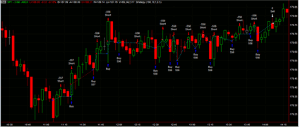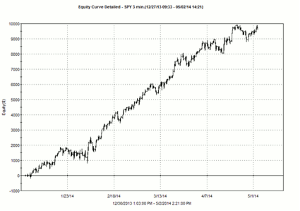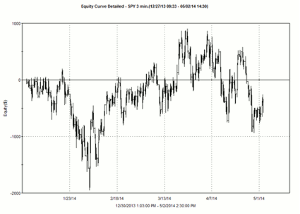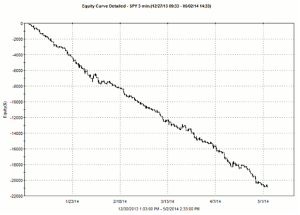When running algorithmic back tests, it’s important to always include reasonable transaction costs and slippage assumptions, says Andrew Falde of SMB Training Blog.
Here’s a quick example of how a seemingly great strategy can fall apart quickly when you leave these two critical factors—transaction costs and slippage—out of the study.
This is a simple range bound strategy for SPY that is setup to trade during the typically quiet mid-day session.
Here’s what the price chart looks like on the trades:
Here’s what the back-tested equity curve looks like for last few months:
Here’s what the curve looks like with $0.005 per share commissions:
And now we’ll add $0.01 per share slippage:
As you can see, these factors are extremely important to include—specifically on this time frame and type of strategy. It’s often said that a good strategy should work on any time frame. There are many good reasons for that thought process; but in reality, shorter time frames have more costs relative to the size of each trade.
There are plenty of strategies that can work in these fast time frames. Ultimately you will only know how it works after putting it through a period of simulation trading and live execution on incrementally larger size. You’ll find out very quickly if your assumptions were wrong; then you can make the necessary adjustments to modify the strategy so that it can execute well in the market.
Andrew Falde, Contributor, SMB Training Blog














